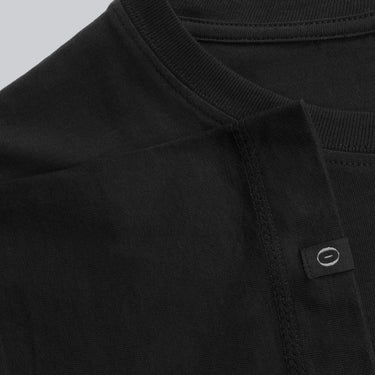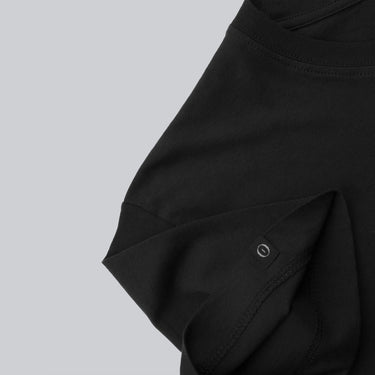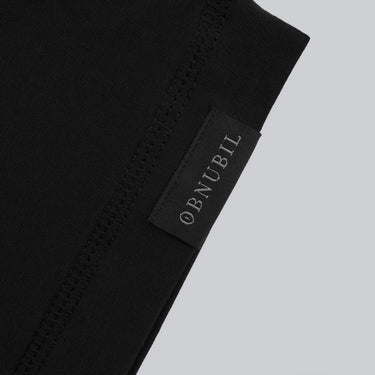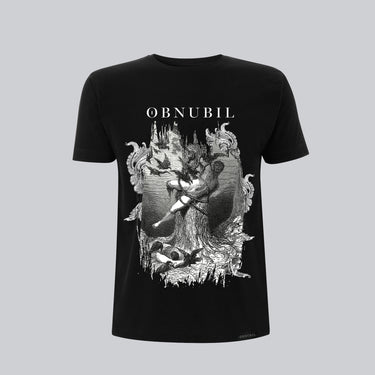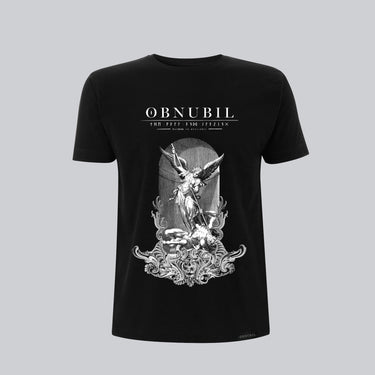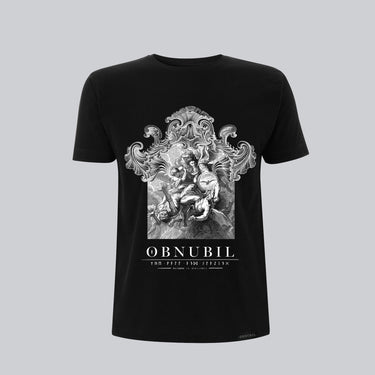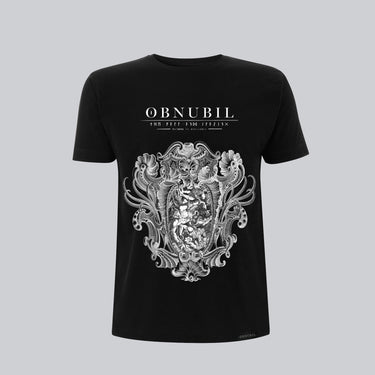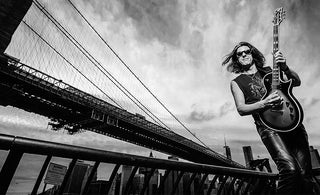
Some artists are restless. American guitar legend Alex Skolnick is not one for sitting still, he is ever-evolving and always growing. He started his musical career in the mid 80s as a teenager with the Thrash Metal band Testament. While he continues to be heavily involved with them, in the late 90s Alex moved to New York City enrolling in The New School for Jazz & Contemporary Music and graduating with a degree in jazz performance. He went on to become a fantastic Jazz guitarist, showing great work with his Alex Skolnick Trio, and is making a lasting impact on Jazz in the same manner that he has on Metal. He can be found at any given time working with artists as diverse as jazz bassist Stu Hamm, Percy Jones or metal drummer Mike Portnoy. As an educator and speaker, Alex has been invited to give keynote addresses at academic events such as Dayton University’s Metal and Cultural Impact conference as well as joining various PhDs at the International Society for Metal Studies in Helsinki. And if all that were not enough, he is also passionate about art, literature and photography, passionate about Leica cameras thanks to his friend Randy Blythe from Lamb of God. It's not often that you get the chance to "talk" to one of the best guitarists of a generation, so I am very happy about this interview. I can also underline his kindness in person after having the fleeting opportunity in Madrid a couple of years ago.

INTERVIEW
OBNUBIL: Hi Alex! Thank you so much for the opportunity to ask you some questions! I think there is no big need to introduce yourself, everyone will know who you are, but maybe they don't know your roots. Who were your earliest musical influences, and how have they shaped your approach to the guitar and music in general? Are there any non-musical influences that have significantly impacted your beginnings?
ALEX: My pleasure and thanks for the opportunity. My earliest musical influences are the classic artists I’d hear on radio, films and ads for compilation records on TV as a young kid, long before I even played. This would include The Beatles 50s rock such as Chuck Berry and Little Richard, as well as the band that made me want to pick up the guitar: Kiss. A year or two later, I discovered Van Halen and Ozzy and it was their guitarists, Eddie Van Halen and Randy Rhoads, who inspired me to wish to one day become a virtuosic player. I am still a fan of all that music and I would say The Beatles made me interested in both the art of composition and blending various influences. The energy and vibe of the 50s rock ‘n’ roll greats and 1970s Kiss is still inspiring. And Eddie to me remains rock’s greatest virtuoso, I’m still challenged by his work. Randy’s constant furthering of his playing, including classical studies, remains an inspiration. Probably the biggest non-musical inspiration was films. But of course, the music is such an important component, whether it was John Williams, big Scores and films like Star Wars and Jaws, or the haunting classical pieces in films by Stanley Kubrick. And of course, there were many early 80s films centered around music, such as Pink Floyd, “The Wall” and The Blues Brothers, both of which I would go to see repeatedly.
OBNUBIL: You started playing the guitar when you were only 9 years old and studied under the legendary Joe Satriani. What was the most valuable lesson you learned from him that you still apply today?
ALEX: I actually started with a folk teacher. His name is Gary Lapow and he was a fantastic teacher. I bounced around with a few other local players once I wanted to be a lead guitarist. The two best of these local players had studied with a guy named Joe and I only knew that he was a very serious teacher and you couldn’t be a casual student with him. By this time, I was 14 or 15. I learned many things from him, including not being overly influenced by any other player, the importance of being a musician and not just a guitarist and the level of dedication required if you’re going to do this for real.
OBNUBIL: Back in 1984, you started your musical career at the age of just 15 when joining the local Bay Area thrash metal band Legacy, which eventually became Testament. It's been a few years since then! How did this come about at such an early age?
ALEX: In the mid 1980s, I had already played for a few years and unlike today, it was difficult to find other young musicians who were at the same level and ready to play gigs. I was eager to get up on the local stages of the venues where I would go and hear music with my friends. It seemed like it would take forever before I would find a group of kids, my age with whom we could pull this off. I was just beginning to think that may be the answer would be to find a band that is a bit older and already performing at is in need of a guitarist. In a total coincidence that felt like I had put it out there and caused it to happen, I heard that a guitarist had left this band that was then called Legacy. I knew about them because they’ve been the support act on some of the earliest shows of groups like Slayer and Megadeth, who were then brand new but already generating a lot of excitement. I knew someone who knew the band and told them about me. I went to their rehearsal space to meet and play a bit. I left that rehearsal space with two upcoming gigs on my calendar, my first ever at Ruthie’s Inn and The Stone in San Francisco. Mission accomplished.


OBNUBIL: You've had a diverse musical journey, from thrash metal with Testament to jazz with the Alex Skolnick Trio. Many musicians are defined by one genre, but you've successfully navigated multiple. Was there a specific moment that inspired you to break away from being solely a metal guitarist?
ALEX: One thing I hadn’t taken into consideration when I jumped into the metal scene at such a young age, was the possibility that I might still keep developing as a musician. There were several points that led me towards becoming a diverse musician, comfortable sharing stages with professional jazz artists as well as metal. One of the most important was hearing Miles Davis, who by the 1980s was doing music that was very hard to define. Some was straight up funk, some of it was blues, some of it felt global with world music influences, but all of it with the highest level of jazz improv. I was inspired to be the type of musician that could navigate a situation like that with all these different styles and this incredible freedom on instruments. It also became clear that in order to do so, one had to have a foundation and what is probably best described as straight ahead jazz. Another pivotal moment was being in the recording studio while a live John Coltrane record was being remastered for CD in the studio next-door. It sounded like he was still alive playing in the room. I was as knocked out as I was when I first heard Eddie Van Halen’s “Eruption.”
OBNUBIL: Jazz is a genre that demands a lot of improvisation. How has your jazz background influenced your approach to live performances with Testament, especially when it comes to solos? You’ve seamlessly navigated between thrash metal and jazz guitar. How do you balance these two distinct genres in your playing and composition, and do they ever influence each other?
ALEX: Playing Jazz Guitar certainly opens up a lot of ideas when you’re playing other genres particularly Metal. There is also more freedom to improvise, even if the metal solo is recognizable to the casual listener. The sounds are very different. I play different instruments with very different tones and different types of amplification depending on whether it’s Jazz or metal. There are occasional times I might try to mine an idea from jazz if I’m playing through my metal rig and vice versa. There are a few song ideas that have come about this way.
OBNUBIL: Testament has been a pillar in the thrash metal scene for decades. What are some of the most significant changes you’ve witnessed inside the metal scene, and how have they impacted your approach to being a professional musician?
ALEX: There are many changes that have taken place for sure. I think one of the most positive things is very simply growing up. One of the reasons bands like Testament, Exodus and Death Angel are all having a moment, sounding our best and drawing the best crowds of our careers is that all the band members have gotten over the period of being crazy young people. Of course there is still a lot of youthful energy but it is minus the dysfunction and over the top behavior that defined our scene in earlier years. I also think technology has played a role. From onstage equipment that sounds better and is designed for this type of music, to in-ear systems in which we can hear ourselves play to PA systems that don’t blow up because they can’t handle the level of volume and distortion that comes with heavy music. That was the case in the early days. Also, the Internet, for all its problems, has made some things much easier - such as not feeling completely isolated from the rest of the world when we go on tour.
OBNUBIL: The music industry has changed dramatically since your early days. How do you view these changes, especially in terms of AI and how musicians connect with their audience and the role of social media? What do you think is the most important thing that the next generation of musicians needs to know about the craft, the industry, and the art of staying true to themselves?
ALEX: Well as indicated in the last question, there are positives and negatives to the changes that have taken place, particularly with technology. Album sales are no longer a means of livelihood. At the same time, it used to cost an arm and a leg to record music with decent quality. Now the costs have gone way down and we are able to have professional quality recordings that are done at home or on the road. It’s also made the recording process much easier. Getting a clean take of apart is similar to editing a word document. This is extremely convenient, but it also leads to laziness, particularly with newer generation artist who haven’t been required to get their music together, live before going into the studio. I would encourage all newer musicians to prepare their music as if this technology didn’t exist and be able to play it live like a real band. Then when you’re in the studio, you’ll have the freedom to cut and paste, but won’t be so reliant on it that it lowers the quality of your music.
OBNUBIL: Over the years, you have also dedicated yourself to teaching and clinics. You've inspired countless guitarists over the years. What do you think is the most important lesson you can impart to young guitarists today?
ALEX: There are many lessons that I would be happy to share with aspiring musicians. But if I have to just pick a few important ones they would include the fact that rhythm is the most important thing and really nothing is worth playing until there is a solid sense of rhythm. Develop this first. Another thing is that it is best to discover what comes naturally to you and then develop that talent. If I were to suddenly decide, I’m going to be the next Steven Tyler or Freddie Mercury, it wouldn’t matter because no amount of practice or dedication is going to give me that vocal range (my voice is more suited to Johnny Cash). The potential has to be there. And it might not be. And that’s OK. Rick Rubin once wished to be an instrumentalist, but quickly realized it just wasn’t in him. But look at him now he’s now of the most successful people in the Music Industry of all time. Find what you at least have potential to be good at and can enjoy the process of developing that talent, then pursue that.
OBNUBIL: In your opinion, what makes a guitar solo truly memorable? Can you recall a solo you've played that holds a special place in your heart, and what makes it significant to you?
ALEX: To me a great guitar solo is like a composition with a composition. It has to say something and take you on a mini journey. It also has to have a good sense of resolution both within the solo and as pertains to individual licks, and a good sense of completion of the solo as a whole. Of my more recent solos, there is one for the song called “Stronghold” that I feel works well. “Return to Serenity” is one that I enjoyed putting together and playing at the time in the early 90s, OK, but I never imagined the reaction to it which seems even stronger today. I keep hearing from listeners who rank it with some of what I consider all time great solos, not just in metal but rock overall. It is very humbling.
OBNUBIL: What are some of the best solos you've heard?
ALEX: Some of my favorite solos are “I’m the One” Van Halen, all the solos on “That Smell” by Lynyrd Skynyrd, “Nothing Personal” by Pat Metheny (with Michael Brecker), “Comfortably Numb” by David Gilmour, “Looking Out From Nowhere” by Michael Schenker, “Time is Free” by Jimmy Herring (with Aquarium Rescue Unit).


OBNUBIL: You've managed to sustain a long career in an industry known for its ups and downs. What do you think has been the key to your longevity and continued relevance? If you could give a message to your younger self just starting out in the music industry, what would it be?
ALEX: I think a big part of having longevity in the Music world is remaining focused on the positives and remembering what brought you to Music in the first place. There are unavoidable negatives from bad business deals to personal dramas to too many things to name. But the joy of creating and appreciating great art, whether it’s the music or the instruments themselves is something no one can take away. I would tell my younger self it does not matter what anyone else thinks. The only one with power over you is you.
OBNUBIL: As a performer, you’ve played everything from small clubs to massive arenas all over the world. You’ve gained a lot of recognition for your work. How do you stay grounded and focused on your art, amidst the pressures of fame and public expectation? How has your perspective on success and fulfillment evolved over the years?
ALEX: I grew up the youngest in my family, and one of the youngest in my classes at school. I would always look to others for guidance until one day I realized, for the most part, the average person around me has no idea what the answers are. Others are much better at acting confident but they’re just as confused as everybody else. This is why it makes no sense to be dictated by public expectation. Any pressure is all in your head. Learning this has helped a lot. I’ve seen massive concerts in front of thousands that weren’t very good. I’ve also seen performances in tiny intimate spaces that were profoundly moving. Chasing popularity is a losing battle. I’ve long defined success on my own terms. It’s difficult to put into words. But just as one example - I would much rather be somebody that owns one guitar and can express themselves freely and on a high musical level than somebody who has had fortune shine upon them and owns thousands of guitars but struggles to play!
OBNUBIL: You’ve achieved so much in your career already. Are there any unexplored genres, collaborations, or projects you still aspire to? Are there any unfulfilled dreams or goals in your career that you’re still aiming to achieve?
ALEX: Thank you. I’m open to many different types of collaborations and feel that for the most part, those can’t be planned. I do wish to record much more of my instrumental music, particularly with acoustic guitars and experimental electronics. There’s a guitarist named Nels Cline, who is incredibly prolific and records an impressive amount of high-level creative music. He also plays for Wilco, whom he joined after he was established as an instrumentalist. I see him as sort of a role model, who is able to balance playing in a popular band with a vocalist and also continue to put out independent, artistic music.
OBNUBIL: How do you view your legacy in the world of thrash metal and beyond? What do you hope people remember most about your contributions to music?
ALEX: I really don’t think about it much. Dwelling on how you are remembered is a slippery slope into caring too much about what others think. However, when I hear nice feedback from listeners, whether it is fans of Testament, folks who prefer my instrumental music, those who like both, and especially young guitarists, studying jazz, classical or other styles outside of metal who credit me with giving them permission to do so, it becomes clear that my work has offered meaning to them. This is very gratifying, is meaningful to me and inspires me to continue.
OBNUBIL: What’s next for you in your musical journey? Any upcoming albums? New genres, projects, or collaborations you’re particularly excited about exploring? The only thing I know, next are concerts planned with Alex Skolnick Trio, Metal Allegiance and, of course, with Testament. In the last case a whole tour through North America (with Kreator and Possessed) and Europe (with Anthrax and Kreator)!
ALEX: I have a very busy rest of the year coming up. Tomorrow I’m starting a weeklong tour with the group PA KT and an experimental instrumental project with Percy Jones, who is considered a pioneer of fretless bass. I’m chipping away at my parts for the next Testament record which comes out in 2025. My next trio record was recorded and mixing was completed. That will also come out in 2025. I’m working on music for a film to be announced soon. And of course, there are the upcoming tours of Testament and Kreator in North America in Europe, which goes through almost the rest of 2024.
OBNUBIL: Finally, I can't let you go without asking you about a passion that you have had for a few years now: photography! Plus, you use an incredible Leica! How did this passion arise? Is it a means of relaxation that you have found while on tour? Buying a Leica is not just anything, you have to like photography more than just a little.
ALEX: I credit my photography passion for the last few years to Randy Blythe from Lamb of God, a good friend and a fantastic photographer. Randy loaned me one of his Leicas when we were on tour together and by the end of the tour, I didn’t want to give it back ha ha. So I spent a few years with a fixed lens Leica, the Q. Last year, I picked up my first rangefinder, an M11. Joe, the guitarist from Halestorm is also a friend and a great photographer, and he was encouraging. It opens up a whole new well of creativity and makes the travel of touring all the more interesting.
OBNUBIL: I could continue asking a thousand things, but I have to let you rest now! It has been a pleasure talking to you and getting to know you a little more! Thank you so much for taking your time answering the questions! Is there anything that you would like to say to the readers and to your fans?
ALEX: You’re welcome Jackie. Thanks so much for having me. To the readers and fans out there I will just say thank you for supporting what I did all these years, there is much more to come to quote one of my favorite tunes by one of my favorite guitarists, John McLaughlin: Follow your heart!
Interview done August 2024. Cover photo taken by Tom Couture Photography. Photographs in order of publication: Tom Couture Photography, Eleanor Jane, Evelyn Steinweg Photographie, Em Coulter Photography and Evelyn Steinweg Photographie.



